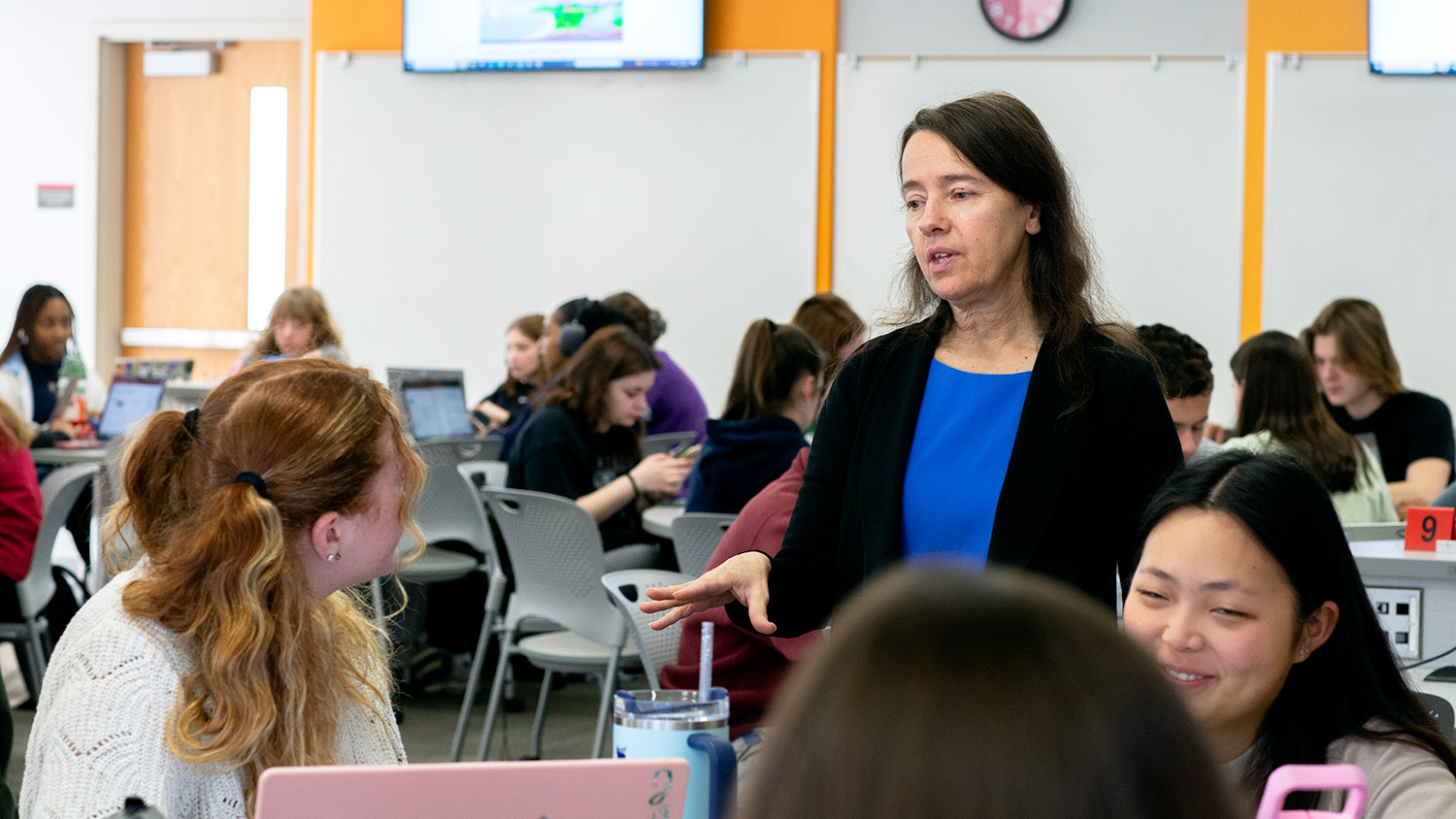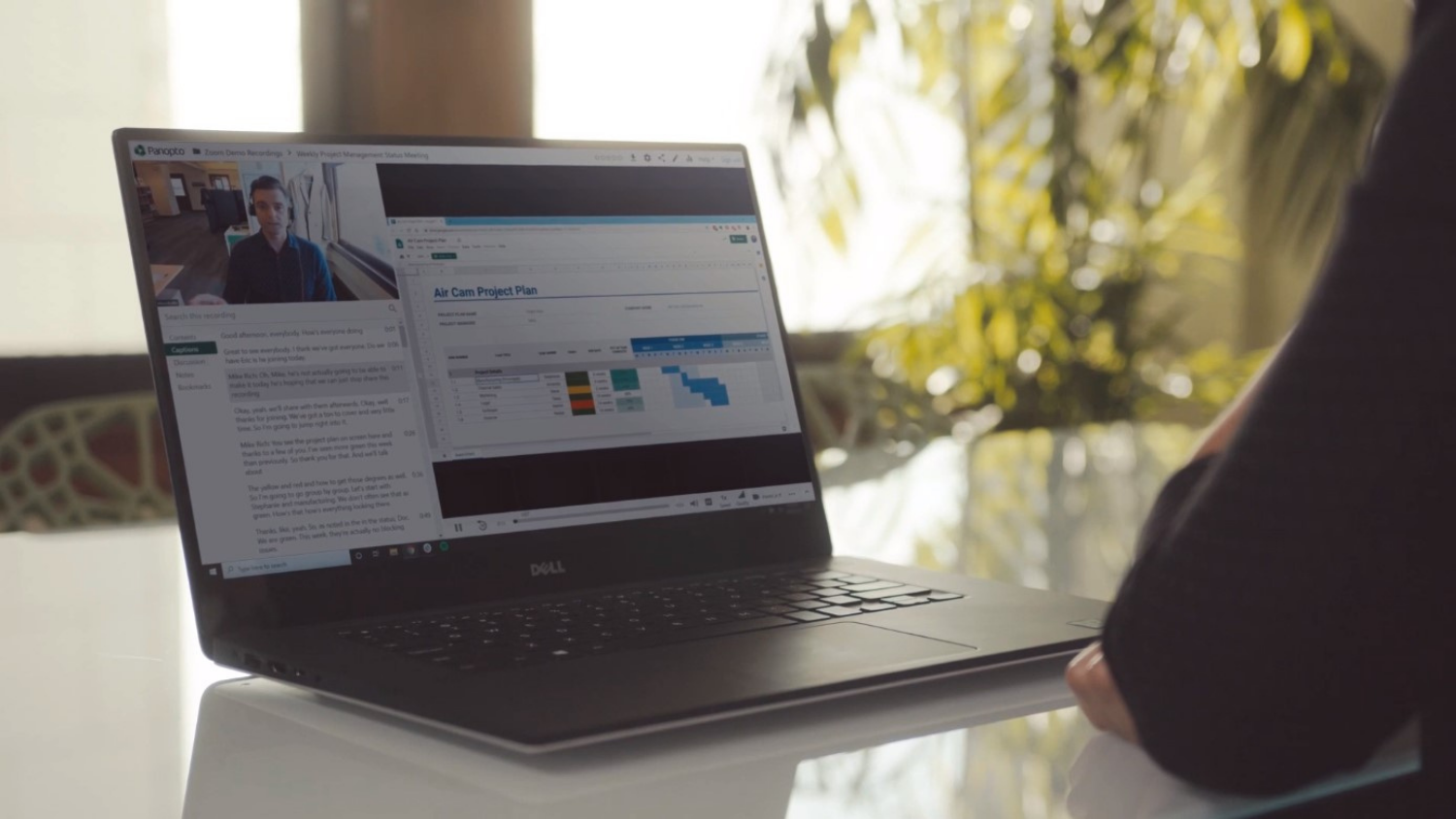The Pathway Toward Quality Assurance
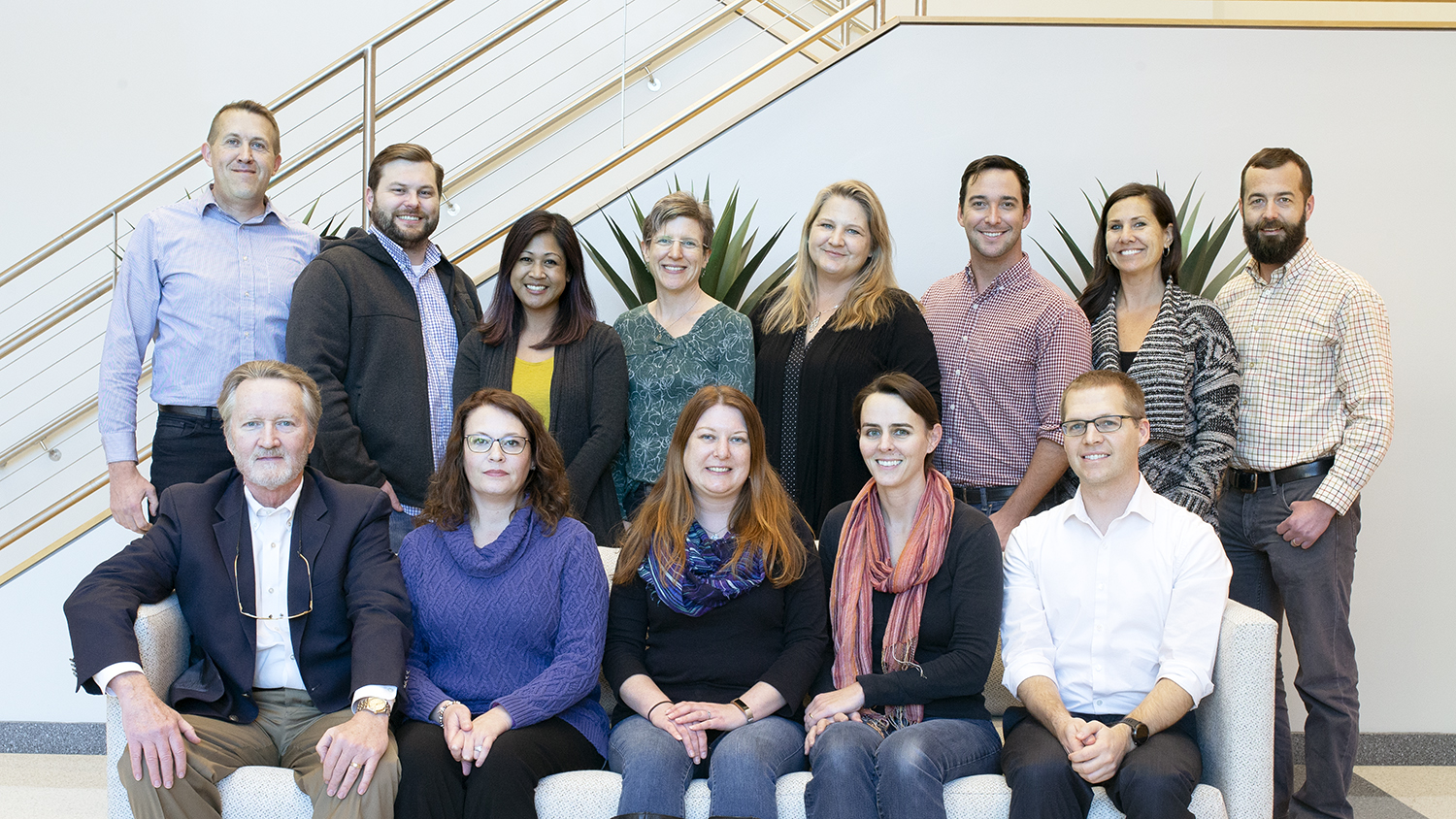
Quality really does matter.
A new group of faculty members are learning firsthand the importance of quality course design as they make their way through the Online Course Improvement Program (OCIP).
OCIP is a part of Course Quality Pathways at NC State — the initiative providing faculty multiple ways to improve their online and blended courses and be recognized for their efforts to raise the bar for quality online education.
The spring 2020 OCIP cohort is on the QM Certification Pathway, meaning they’re working this semester to make improvements to their online and blended courses to meet the Quality Matters Rubric Standards to put their course through an official review and earn QM certification.
Lisa Falk, Megan Lupek, Dmitri Mitin, Frank Perry, Justin Post and Clint Stevenson make up the spring 2020 OCIP cohort. This group joins the 70+ faculty at NC State who have participated in some sort of Quality Matters training.
Let’s Meet the New Cohort
Lisa Falk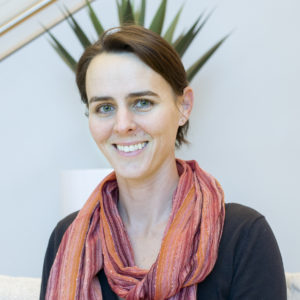
Teaching Assistant Professor
Marine, Earth, and Atmospheric Sciences
College of Sciences
Lisa Falk developed an online version of MEA 100: Earth System Science after teaching the face-to-face offering and coordinating the labs for a few semesters.
“In all of my classes, I’m trying to create a high-impact educational experience where students feel empowered to take ownership of learning and apply their skills and understanding beyond the confines of this one course,” says Falk. “I feel particularly strongly about this with regard to my introductory earth systems science class, as everyone, regardless of their background or future career trajectories, needs to make decisions in their personal, professional and civic lives that depend on an understanding of how the Earth system works.”
Falk noticed in the first couple of semesters teaching online that student success in online courses requires different considerations that are not as obvious coming from a face-to-face environment. She was drawn to OCIP to help with this aspect of online teaching.
“OCIP drew my interest because it offers an opportunity to implement recommendations based on national standards of best practice, the research literature, and instructional design principles — all while receiving support from the amazing instructional designers and technologists at DELTA and learning from a cohort of other faculty committed to quality online learning experiences,” Falk says.
“I see online courses as a valuable tool for broadening our reach and supporting an increasingly diverse and non-traditional student population by leveraging technology to provide flexibility in how students engage with course materials,” she adds. “Having a high standard for the quality of those courses — as represented by the Quality Matters certification — ensures that we’re meeting the goal of supporting our students and removing barriers to learning.”
Megan Lupek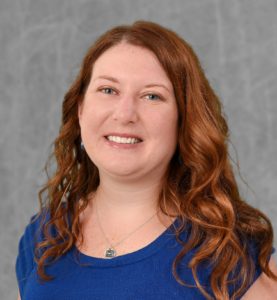
Director of Environmental First Year Program
Department of Forestry and Environmental Resources
College of Natural Resources
Megan Lupek is always looking for ways to improve her classes.
“Continual improvement is necessary to keep a course relevant and interesting to online learners,” she says. “After learning about Quality Matters, I knew that OCIP would be the perfect opportunity to apply the standards to my distance education ES 100 class.”
Lupek is in her ninth semester of teaching ES 100: Introduction to Environmental Science, so she is no stranger to the online environment and always strives to make her courses straightforward and easily understandable for students.
“Quality Matters and OCIP apply a framework that makes it easy to find areas that might be less clear within a course,” she adds. Lupek notes she also is learning from her peers within the cohort.
“It’s interesting to learn about their courses and the diverse approaches to education in other fields. Sometimes I can glean ideas from their classes to apply to my own,” she says.
Lupek adds, “I am so grateful that NC State has such a wonderful and supportive team at DELTA. Their contributions to course improvement are unparalleled!”
 Dmitri Mitin
Dmitri Mitin
Teaching Assistant Professor
School of Public and International Affairs
College of Humanities and Social Sciences
Dmitri Mitin has been teaching in the Leadership in the Public Sector (LPS) online undergraduate degree completion program since 2011. His course, LPS 320: Research Methodology for the Public Sector, is a core requirement for the program.
“Research Methodology is a challenging class for our students, many of whom come from nontraditional or underrepresented populations and, furthermore, lack access to the on-campus resources and support infrastructure, available to regular majors,” says Mitin.
After the Department of Political Science revamped the in-person methodology offerings, Mitin knew it was time for a thorough review of his online course to ensure it conforms to best practices for quality online education and matches the revised learning objectives of the on-campus course.
“I sought OCIP support to improve the alignment between LPS 320 objectives and online deliverables and better adapt the course to the learning environment of our nontraditional students,” Mitin says.
“I am also excited about this opportunity because it advances the broader strategic vision of the School of Public and International Affairs to set the highest standards for our online courses by pursuing Quality Matters certification for the entire LPS program,” he adds.
 Frank Perry
Frank Perry
Extension Assistant Professor
School of Public and International Affairs
College of Humanities and Social Sciences
Frank Perry is fairly new to teaching online, but that doesn’t mean he doesn’t understand and appreciate the importance of quality online teaching and learning.
Perry’s primary reason for participating in OCIP is to learn. “Having taught the traditional way, I wanted to be sure I was communicating at least as well as I do in the classroom,” he says. Adding that he wants to make sure students are understanding the big picture as well as the details within.
As a dad to five children, some of them taking online courses and completing online programs, he’s heard firsthand of the obstacles they faced with the overall organization of courses.
“I want to teach in a way that solves those problems,” he says. “That’s what QM does — I think it’s an excellent training format.”
Perry is focusing on improving LPS 315: Public Leadership. Coming from a background in the FBI and having held the Secretary of Public Safety appointment, Perry finds multiple ways to apply the content of his courses to the real world.
“I’m trying to fine-tune the theory of leadership, but what value is that if it can’t be applied?” he says. “There were 37,000 people in the Department of Public Safety — leadership successes and failures are many. I can fill in the real life work under the theory.”
Perry is vocal about how his wife, Janie Perry, has helped him improve his teaching. She has a background in the cyber division of the FBI, so her innovative spirit is always helpful for Perry. In addition, Perry notes his thankfulness for DELTA as he works to improve his course.
“I’m so appreciative of DELTA. They not only have the expertise, but they have the patience to effectively assist those — both instructors and learners — who lack the expertise to make the most of distance learning,” Perry adds. “I’m looking forward to seeing how students enjoy, receive, understand and learn from the improved presentation of the course.”
 Justin Post
Justin Post
Teaching Associate Professor
Director of Online Education
Department of Statistics
College of Sciences
Justin Post is in his second year of running the online graduate and certificate programs in the Department of Statistics. He’s been teaching online for five years and is working to improve ST 558: Data Science for Statisticians.
“I wanted to participate in OCIP to make sure our courses and programs generally are of the highest quality possible,” says Post. “I’m excited about bringing best practices back to our program, and I think networking with all the participants and seeing how they do their online courses will be really helpful too.”
“For me, the importance of having good quality online courses is to make sure our students are getting the quality experience in the course they are paying for. I want the online courses to feel as comfortable to them as an in-person course — making sure navigation of the site is easy and expectations are made clear so that they can be successful,” Post says. “QM should help with that!”
 Clint Stevenson
Clint Stevenson
Associate Professor of Food Science
Distance Education Coordinator
Department of Food, Bioprocessing and Nutrition Sciences
College of Agriculture and Life Sciences
When asked about his interest in OCIP, Clint Stevenson put it simply, “It is the right thing to do.”
He adds, “The QM standards are straightforward, sensible and student-centered. I’ve been meaning to pursue QM certification for a few years, and it is fantastic to see DELTA embracing it as an initiative and putting resources to help faculty toward it.”
Stevenson has been teaching FS 435/535: Food Safety Management Systems for the past eight years and, during OCIP, hopes to develop new habits that are aligned with QM standards.
“I think the QM certification of this course will free up students’ attention so we can focus on applying subject matter, rather than clarifying any confusion that might exist with regard to course expectations,” he says.
Stevenson’s journey with QM isn’t over after course certification. “I’d like to go as far as becoming a QM peer reviewer,” he says. “Also, I’m hoping to collaborate with colleagues in my department to get more of our courses QM certified.”
Spreading the Word and Looking Forward
Over the last two years, a number of faculty have taken the lead to share the word about QM with the campus community and at conferences across the country.
Christine Cranford and Julianne Treme are two of those people. Both have completed OCIP and gone on to receive official QM peer reviewer certification.
The two faculty presented a poster session at the NC State Office of Faculty Development’s Teaching and Learning Symposium held Feb. 28, 2020. The poster focused on the faculty perspective of applying the QM rubric by offering solutions to common roadblocks faculty face in the process.
For Cranford, the impact of QM has become very evident to her.
“Students have commented on the clarity of the course — that the course is clearly organized and easy to navigate,” Cranford says.
Adding, “I have also had students comment on the course alignment. Students stated they liked seeing the learning objectives for each unit and how these objectives were supported by learning materials and assessments.”
The Course Quality Team is also busy sharing best practices with other instructional design professionals across the country at conferences including the EDUCAUSE Learning Initiative (ELI) Annual Meeting and national QM conferences.
Jill Anderson, Christopher Beeson, Vince Lastreto, Arlene Mendoza-Moran, Rebecca Sanchez, Bethany Smith and Bethanne Tobey make up the team who is focused on empowering instructors to apply the QM standards to make a difference for their students.

